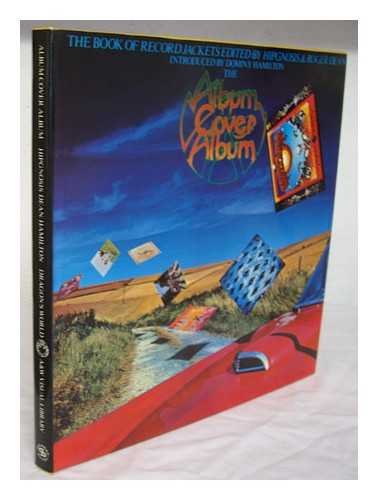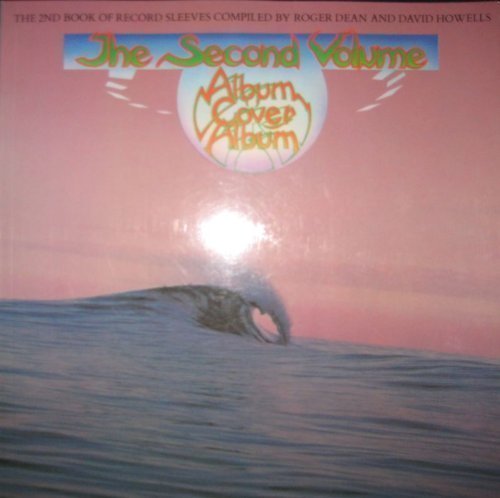| Day 216: Genesis (Follow You Follow Me)
January 10, 2023
I knew nothing about Genesis in 1978. I suppose that isn't completely true; like the Biblical Genesis, I knew something existed, but only in some kind of ephemeral realm that I would never inhabit. My album cover albums' books --


-- featured their exotic album covers, so I had vague knowledge of Selling England By The Pound and Foxtrot, but no radio station was playing Genesis in Morgantown, West Virginia; or if one was, I was somehow completely missing it. They existed in a world of bands I only knew because of album covers, such as Yes, or Lindisfarne, or Roxy Music (Talk about album covers! I would correct that Roxy mistake regarding the music later in life).
My Genesis awakening occurred because I was exposed to BBC radio for 5 months in 1978; or because Peter Gabriel left Genesis; or because Mike Rutherford threw together a quick love song to conclude Genesis' And Then There Were Three. Yes, like the SAT, this question really does lead to D: all of the above.
"Follow You Follow Me" rose to #3 on the British single charts that summer of 1978 when I was desperately listening to the little transistor radio I brought from Morgantown as my one constant companion that summer of my father's sabbatical in London. I now see it was a minor hit back here in the states at the time, apparently reaching #23. Maybe I would have heard it if I had stayed home, but at #7 in the U.K., that pretty much guaranteed a two-to-three hour rotation on BBC radio, squeezed in between "You're The One That I Want" (one couldn't avoid Grease anywhere in the world, I suppose), The Boomtown Rats' "Like Clockwork," Boney M's "Rivers of Babylon," The Motors' "Airport," ELO's "Wild West Hero," and Lindisfarne's "Run For Home" (British radio made me realize many bands were a lot more than stylistic album covers).
"Follow You Follow Me" has a delicate little guitar riff from Mike Rutherford that can be difficult to conjure up in memory (whenever I want to think of the song, the damn hook from Abba's "Knowing Me Knowing You" inserts itself). The song features no drumming or guitar histrionics, just Tony Banks searing keyboards. It's all lovely stuff, yet how does it garner a following given the aural drama of "You're The One That I Want"; or the orchestral flamboyance of ELO's "Wild West Hero"; or the in-your-face percussion and snarl of The Boomtown Rats "Like Clockwork"?
If, as he says, Rutherford was writing a simple love song for his wife, lyrically he nails it, as the symbiotic relationship that should be at the core of any loving relationship is highlighted:
"I will follow you/
Will you follow me/
All the days and nights that we know will be/
I will stay with you/
Will you stay with me/
Just one single tear in each passing year."
Later when he writes "the night is long but you are here close at hand/I'm better for the smile you give," it is the second best reference ever to a smile in a rock song (sorry, The Cowboy Junkies win with "have you ever seen a sight as beautiful/as a face in a crowd of people that lights up just for you").
I liked the song enough to purchase And Then There Were Three when I returned home in August 1978. With the rest of the album rather ho-hum to me, for the longest time I didn't play the album enough to get past the warm fuzzy of London memories whenever "Follow You Follow Me" came on. I am not sure I fully appreciated it as a love song.
Love songs are not easy to pull off, if you ask me. (I know you didn't ask, but that's the beauty of writing in a silo.) You can't go too over the top with the lyric and not have it wrought with syrupy teenage visions of love (even though it is the teenagers who love you, songwriter, at least until, as Morrissey sings, "they wake up and kill you"). "I love you more than life itself." "I can't live without you." "You are my everything." Yeah, we hear these throughout pop music, but they don't have much substance.
Rutherford here seems to capture what should be the essence of love: "in your arms I feel so safe and secure" packs a lot, even if it doesn't quite have the same hyperbole as the lines above. It is truth in ways that "I love you more than life itself" isn't. I do think this is a mature version of love, one only captured by someone well past the age of his teenage audience; after all, "fears [that] are drifting by me so slowly now, fading away" must be fears that come with adulthood, middle-age, mortality. Teenagers fear nothing (or at least back then; I am not so sure now). I am not sure I could have followed this line of thought in 1978. It has only come to me in my later years, where love becomes better defined while life becomes less defined.
There was a lot of following after "Follow Me Follow You." Good or bad, and perhaps free from the restraints of Peter Gabriel, the lads from Genesis probably liked being on the radio and the profits that came with it. Duke had several hits, including the incredibly catchy "Misunderstanding," and then Abacab and Genesis kept the new model flowing. Progressive band known for strange, rambling songs was replaced by MTV pop stars, all the more surprisingly led by the balding drummer/singer.
Thank goodness they did follow a new path. Seeking out my copies of "Misunderstanding," "No Son of Mine," "Abacab" and "Turn It On Again," I purchased their greatest hits CD and re-discovered "Follow You Follow Me." I feel like I rediscovered love. That ain't a bad feeling as you enter your sixties.
Genesis. "Follow You Follow Me." And Then There Were Three. Atlantic, 1978. Link here.
Day 215: Sleeper "Vegas"
Day 217: Bruce Springsteen "Downbound Train"
See complete list here.
|